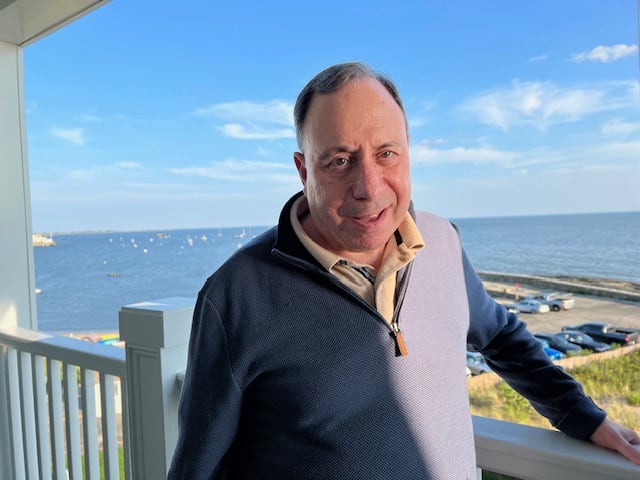“I don’t know why, but I’m happy all the time,” Gold says. “I’m thankful, and I’m happy.”
When his wife and teenage daughter returned home from an afternoon spent horseback riding, they rushed him to the hospital. “It turns out I had an atrial fibrillation and I didn’t know it,” he said. AFib increases a person’s likelihood of having an ischemic stroke by five times. “I had my annual checkup six weeks before and my doctor didn’t know about it either.”
Over the next five months, Gold underwent rehabilitation at various facilities before returning home. “My stroke almost killed me. It almost took out my right side, and now I have to walk with a cane,” he said. “I’m also tired all the time, but I feel no pain. Nothing hurts. For a lot of people, that isn’t the case, so I’m thankful.”
Gold commends the care he’s received at Stamford Health for his recovery. “I have the best doctors in the world, no kidding,” he said. “Dr. Dhruvakumar, who is an electrophysiologist, is just fantastic, and Dr. Buckingham, who’s a neurologist, puts Botox in my leg and that really helps with my rehabilitation. All of the people in the world of strokes are really terrific. I’ve had such quality care.”
That includes the endless caregiving of his wife, who sold her business to support him throughout his rehabilitation and recovery. “She was with me every day, really every day,” he said. “You might think well of me, but it’s my wife.”
Gold noted that the support group is just that – “supportive,” and that he learns a lot every time he attends. “It is really important to have a group of people who know – and who understand – what you are going through, and who, together, can help you through it.”
While Gold cannot practice law anymore because of his stroke, he has found a new passion to fuel his days. “After my stroke, I discovered that when I type, my thoughts and movements are smooth. It just works,” Gold said. So what’s a former lawyer turned stroke survivor who finds solace in a keyboard to do with his days? Well, write a legal thriller, of course. “I wrote a novel called ‘The Great Crime’ entirely with my left hand. And it is perhaps the thing that I am most proud of.”



